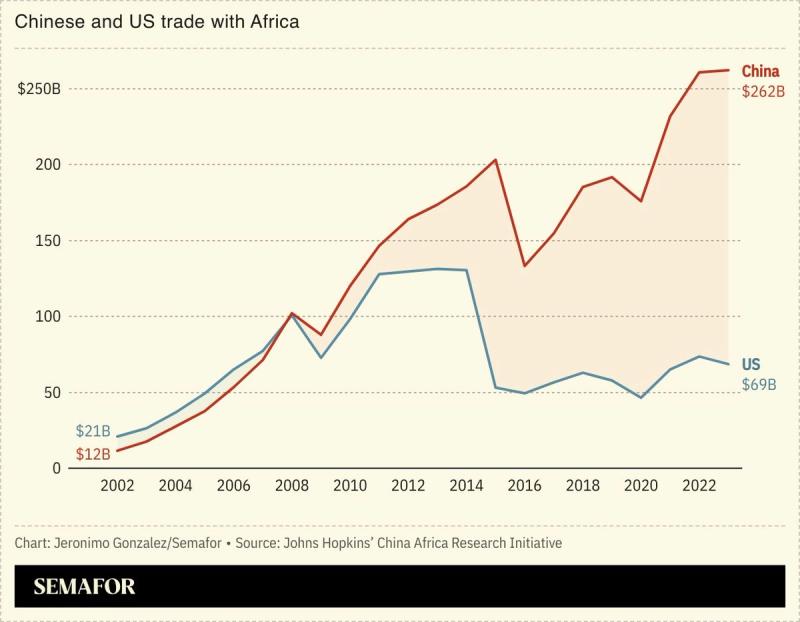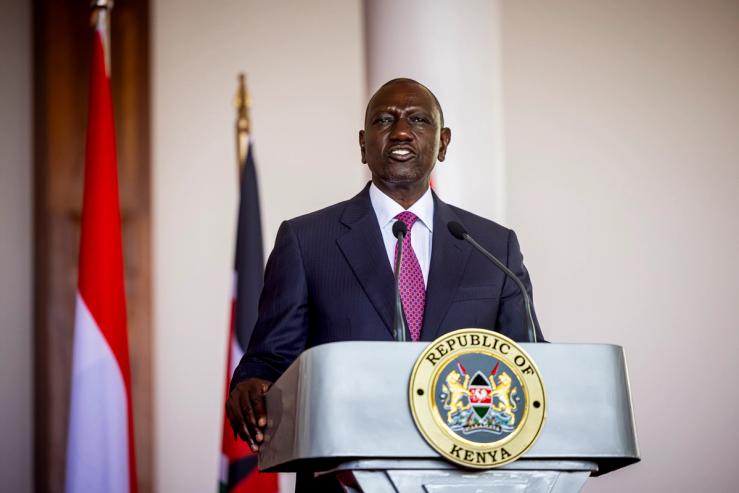The News
Kenyan President William Ruto heads to China tomorrow, the first African leader to be hosted by Beijing since US President Donald Trump’s administration unveiled its unprecedented global tariffs.
Ruto is expected to try to position Kenya in a volatile and shifting geopolitical landscape, alongside more focused discussions on loans and infrastructure financing.
The closely watched trip comes amid an escalating trade war between Washington and Beijing and as China moves to shore up export markets beyond the US. Last week, Chinese leader Xi Jinping used a Southeast Asia tour to emphasize regional ties in the face of global trade upheavals.
Know More
Sino-African ties are robust: China has been Africa’s largest bilateral trading partner for the last 15 years and trade between the two hit a record $295 billion last year. But the relationship is heavily skewed in Beijing’s favor — in 2023, China exported $178 billion worth of goods to Africa, importing only $116 billion in return. In an era of new tariffs imposed by Washington, ties between Beijing and countries on the continent could be strengthened and reconfigured, analysts told Semafor.

African businesses in particular are thinking “how do we diversify and make sure that we don’t depend on the US,” Hannah Ryder, CEO of the consultancy Development Reimagined, told Semafor. “This is where China can come in. Especially in terms of diversifying the type of trade that goes to China… This is what African governments will be certainly seeking for leverage.”
One important fallout of Washington’s tariffs is the expected arrival of new imports from China as well as Europe to Africa. There is “a threat of just being a displaced market for products that would otherwise go to the US, especially for middle-income and upper-income consumers,” said Ryder, a former diplomat and economist with a focus on China. To counter this, she added, African governments need to be more demanding around manufacturing.
Most of Africa’s exports currently consist of raw materials and commodities that are then processed elsewhere. “What needs to be done is to really increase the value addition” on the continent itself, Ryder said.
Examples of countries that have started to buck the trend in recent years include Ethiopia and Rwanda, who sell coffee to Chinese retailers using e-commerce platforms, two experts noted in an article for the Carnegie Endowment for International Peace, a Washington-based think tank.
Step Back
Washington’s tariffs highlight the much deeper relationship that Africa shares with China. “The manner in which the US has gone about its protectionist turn (and aid cuts before that) will reinforce the idea that China is a much more responsible and reliable development partner,” Ken Opalo, a Georgetown University political scientist, told Semafor. “Countries that already had strong relationships with Beijing will perhaps now find reason to strengthen those ties.”
Others will likely want to hedge their bets, said Alex Vines, head of the Africa program at UK think tank Chatham House: “Most African states wish to avoid being pigeonholed. They will increasingly try to maintain multiple partnerships — including [with] China, Gulf states, Turkey, Europe, Russia, and others. The US will still be in the mix.”
Notable
- The geopolitical undertones of Ruto’s visit to Beijing, and the prospects for Kenya, is explored in an analysis for the Nation.


